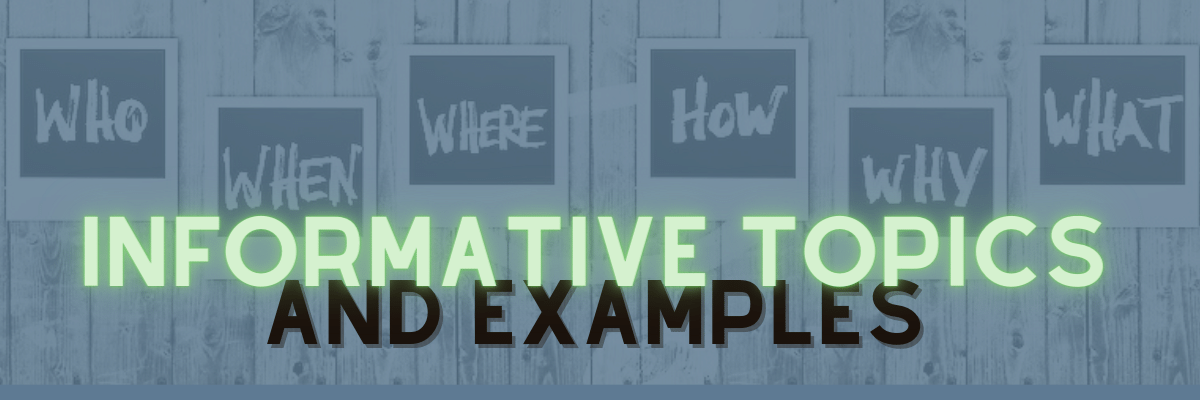Expository Speech Topics
Expository speech topics are some of the most straightforward subjects to determine! Expository speeches should be informative, having as a goal to describe, explain or defining an idea, or process, or an object. Consequently, you have a LOT of scope in picking something that interests you!
On this page, I'll take a look at what makes an excellent informative speech and some excellent brainstorming techniques. Alternatively, you may prefer to jump straight to some good expository speech topics here.
Tips for Picking the Perfect Topic
Before you decide on the right topic for your next expository speech, there are a few things you might want to keep in mind. As you get started on your brainstorming process, consider the audience.
Any good expository speech involves listeners by allowing them to visualize the topic. Another goal of your presentation is to offer audience members precise and specific details in a clear, logical order. To achieve both goals, it's a good idea to give the audience a clear idea about your topic. Offer details that not only enlighten them, but also motivate and interest them.

Choosing the perfect topic to meet the requirements of your next class assignment also means thinking about the categories into which the required speech may fall.
1. Some expository topics are informative
It is best to classify some expository speeches as lectures that inform audiences about an idea or a process. Informative topics that fit into this category might include those that explain how a problem was solved. You would help your audience to either understand the process or demonstrate the ability to perform the procedure.
2. Some discuss events
The second category of expository speeches discusses past or current events. In this type of speech, you would offer audience members a clear idea of the main circumstances that occurred during the event about which you are speaking. For example, perhaps you have chosen to communicate about a famous battle. You might talk about the movements of each army during the campaign.
3. Some define a topic in detail
With any of these categories, you must decide how to organize the details of your speech. For some of the varieties, a chronological order might work best. For others, you may need to work through the details in emotional order. Still, with other expository speech topics, choosing to show the details in terms of a spatial order might be your perfect option.
**Sidebar**
Visual aids in expository speech topics
Visual aids can help make your speech more understandable, entertaining, and enticing. But, the use of visual aids is optional and should not be the focus of your speech.
Click here for more information about how to use visual aids in your presentation.
Once you have examined the requirements of your expository or informative speech, you are ready to start choosing a list of speech topics that meets your needs.
After compiling a list of good expository speech topics, you can begin to zero in on the perfect topic area for you. There are lots of topic ideas within the realm of expository speeches, but staying close to your interests is the best way to find the most suited theme.
If you choose a topic that doesn't particularly interest you, your lack of enthusiasm will show. So begin making your list by thinking about the issues you already know, understand, and find appealing.
Are you proficient in any particular areas? Can you think of issues that have overtaken your attention recently? For example, maybe you served as an EMT on the streets of a major city for a few years before you decided on a college.
There are probably thousands of things around which you could create an expository speech, purely based on your experiences. You might even find some good topics within OTHER courses you are taking!
Choosing the perfect informative or expository speech topics does not have to be hard. It is merely a matter of finding a subject you care about and know well, then distributing your knowledge clearly and engagingly.



